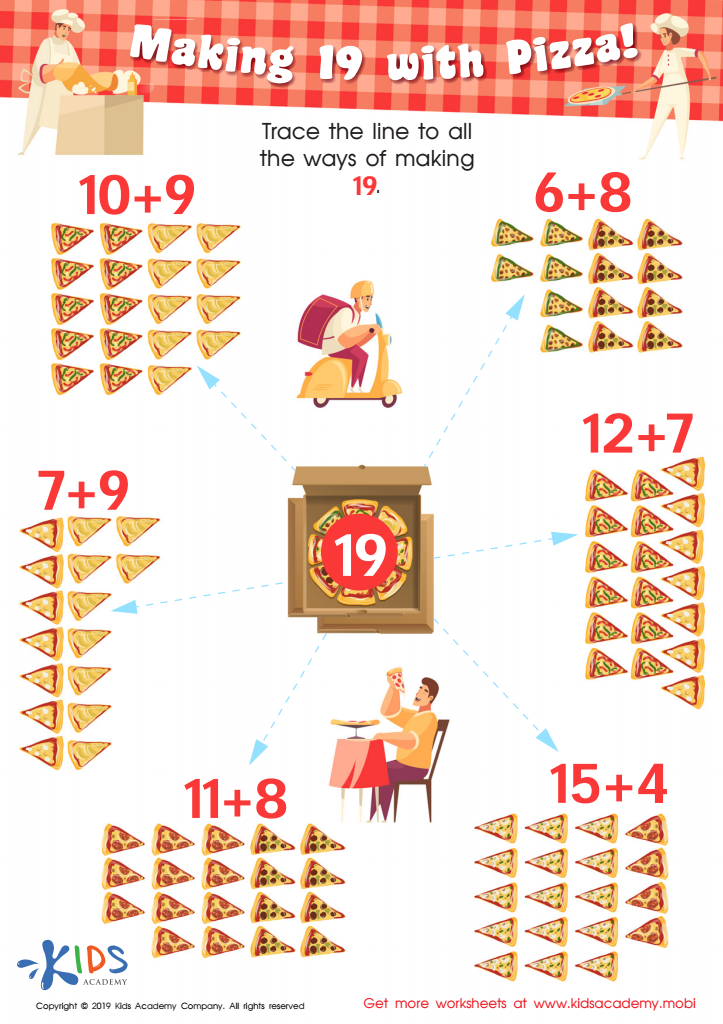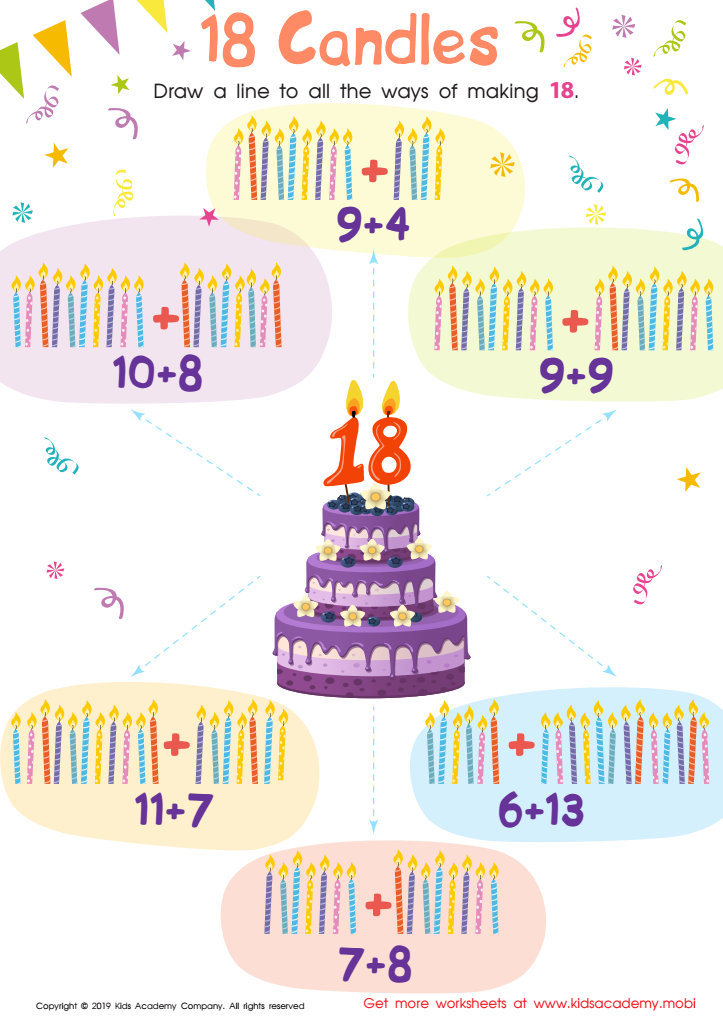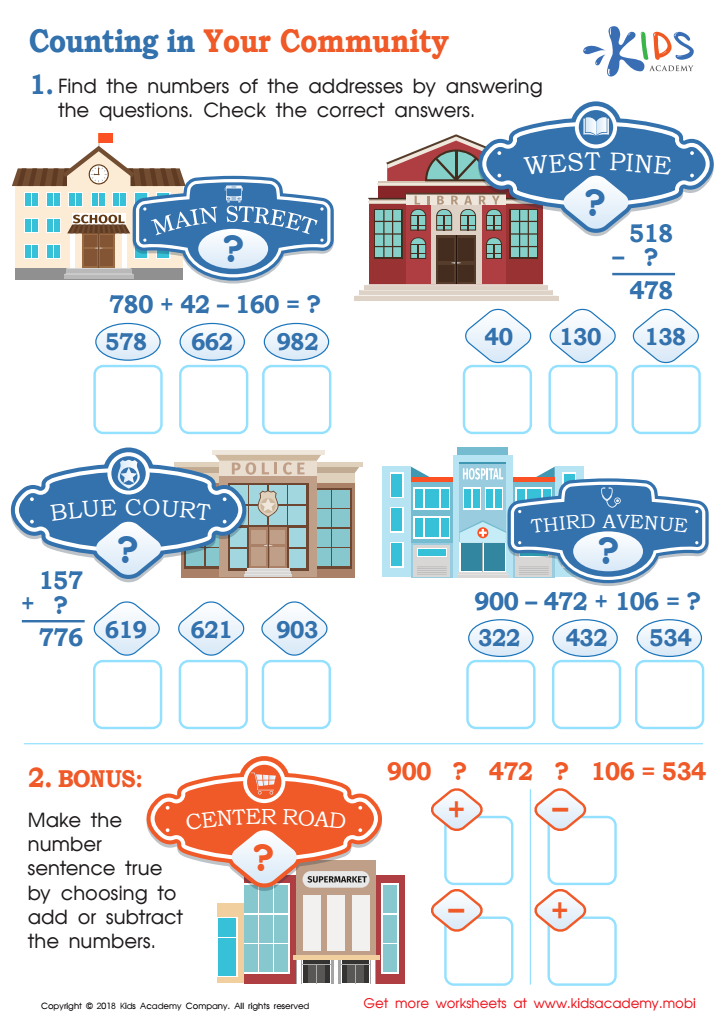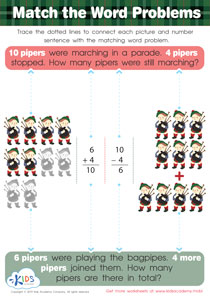Counting practice Normal Addition Worksheets for Ages 5-7
3 filtered results
-
From - To
Explore our engaging Counting Practice Normal Addition Worksheets designed specifically for children ages 5 to 7! These fun and interactive worksheets help young learners strengthen their counting and addition skills through a variety of exercises. Each worksheet is crafted to promote number recognition, basic math concepts, and problem-solving abilities. Perfect for home or classroom use, our resources make learning addition enjoyable and effective. Whether you're looking to reinforce concepts or provide extra practice, our worksheets are a valuable tool for building a solid math foundation. Download now and watch your child's confidence and skills grow!


Making 19 with Pizza! Worksheet


18 Candles Worksheet


Counting in Your Community Worksheet
Counting practice and normal addition are foundational skills for young children, especially for those aged 5-7, during a critical period of cognitive development. Engaging children in these activities fosters a strong mathematical foundation that they will carry forward into more complex concepts later on.
During this age, children are naturally curious and eager to learn, making it an ideal time to introduce and reinforce counting and addition. These skills enhance their number sense, which is crucial for problem-solving and logical thinking. By practicing counting, children improve their ability to group numbers, recognize patterns, and understand the concept of quantity, which is essential for their overall mathematical competence.
Additionally, counting and normal addition promote cognitive development by encouraging children to focus, improve their memory, and develop critical thinking skills. They also build confidence and independence as children learn to explore quantities on their own.
Parents and teachers play a vital role in creating a supportive learning environment. By incorporating counting and addition into everyday activities, such as counting objects during play or adding items during shopping, they help children see the relevance of math in real-life situations. This approach not only makes learning enjoyable but also sets the stage for future academic success.
 Assign to My Students
Assign to My Students





















